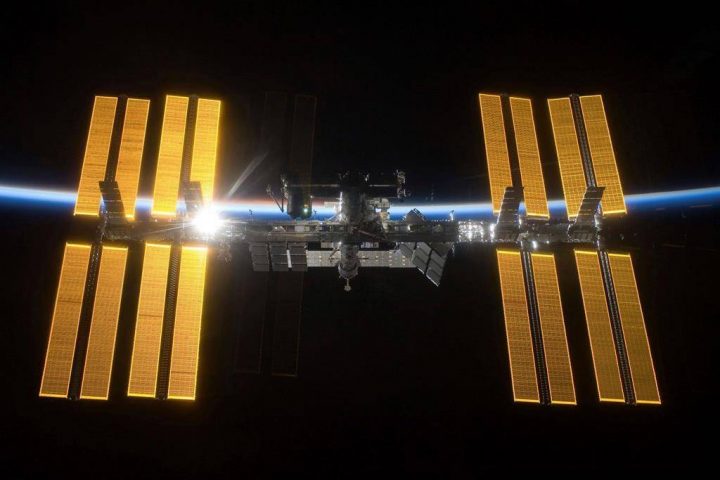A sample of meat has been successfully grown in space for the first time.

Cells harvested from cows were taken aboard the International Space Station, about 400 km above the surface of the Earth, and grown into beef tissue samples using a 3D bioprinter.
READ MORE: Richard Branson, Bill Gates back startup that grows animal meat — without animals
Aleph Farms — the Israeli food tech company behind the world’s first lab grown “minute steak” — said in a press statement that they grew the space meat in “micro-gravity conditions” on the Russian section of the ISS.
According to the company, their reason for growing meat in one of the “most extreme environments imaginable” was to research various methods of feeding a rapidly-growing population with “sustainable food production methods that don’t exacerbate land waste, water waste, and pollution.”
According to the Food and Agriculture Organization of the United Nations, beef and cattle milk, respectively, account for the 41 per cent and 20 per cent of their sector’s overall greenhouse gas outputs, and are listed as contributing factors to climate change.

“We are proving that cultivated meat can be produced anytime, anywhere, in any condition,” said Aleph Farms CEO and co-founder, Didier Toubia to The Guardian.

Get breaking National news
“We can potentially provide a powerful solution to produce the food closer to the population needing it, at the exact and right time it is needed.”
Aleph Farms announced last December that they had created the first cell-grown piece of steak in a lab.
READ MORE: Cattle farming in the Amazon has likely caused mass deforestation: experts
“This small amount of cells serve as the basis for getting more and more cells, and from these cells we create the different cell types that comprise the muscle cut which is actually the steak we are eating” explained Aleph Farms scientist Neta Lavon during a 2018 interview with Global News.
A serving of the “minute steak” costs about USD$50, and the company hopes to launch the product in 2023.

“In space, we don’t have 10,000 or 15,000 liters of water available to produce one kilogram of beef,” said Toubia.
“This joint experiment marks a significant first step toward achieving our vision to ensure food security for generations to come, while preserving our natural resources.
- Minister ‘disappointed’ in OpenAI, but why is AI regulation taking years?
- OpenAI’s handling of Tumbler Ridge shooter info opens regulation questions
- Blizzard slams into northeastern U.S., with intense snow and travel bans
- OpenAI reps summoned to Ottawa to discuss concerns following Tumbler Ridge shooting








Comments
Want to discuss? Please read our Commenting Policy first.